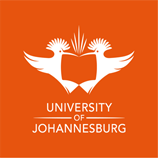The Bachelor of Commerce in Accountancy is a professionally-oriented and highly relevant online programme that will provide you with an international perspective on global principles of finance and accounting. Potential students are individuals who want to pursue a career as professionals in the bro

The Bachelor of Commerce in Accountancy is a professionally-oriented and highly relevant online programme that will provide you with an international perspective on global principles of finance and accounting.
Potential students are individuals who want to pursue a career as professionals in the broad fields of finance and accounting but who, owing to financial and geographical barriers, are unable to access contact education, or who would prefer the flexibility that is available through distance learning.
This online programme will develop your intellectual, practical and critical-thinking skills so that you can apply subject-related knowledge and solve problems, which is expected of an entry-level accountant in any international practice.
Qualifying students should be ready to enter the job market as entry-level accountants who can apply the knowledge they have gained and make decisions to solve problems in a holistic business context.
Additionally, the programme will help you to become a self-directed, lifelong learner who can work effectively as an individual, in teams and in multidisciplinary environments. The programme emphasises competence, integrity, and application of ethics in a professional business environment, and will enable you to act professionally and ethically.
Finally, this programme will prepare you for further studies in international accounting, governance, risk management and control, auditing, financial management, and management accounting as a science.
Furthermore, the programme provides you with a comprehensive and fundamental knowledge base of the underlying core international principles of accounting, governance, risk management and control, auditing, financial management, and management accounting.
In line with the international focus of the programme, it will not offer a module on national tax, as tax laws differ from country to country.
Important global tax principles will be incorporated into the other modules, specifically accounting and financial management.
Vibrant, multicultural and dynamic, the University of Johannesburg (UJ) shares the pace and energy of cosmopolitan Johannesburg, the city whose name it carries. Proudly South African, the university is alive down to its African roots, and well-prepared for its role in actualizing the potential that higher education holds for the continent's development.
UJ has transformed into a diverse, inclusive, transformational, and collegial institution, with a student population of over 50 000, of which more than 3000 are international students from 80 countries. This makes UJ one of the largest contact universities in South Africa (SA) from the 26 public universities that make up the higher education system.
The vision of the UJ is to be "an international University of choice, anchored in Africa, dynamically shaping the future". The mission can be described as follows: "inspiring its community to transform and serve humanity through innovation and the collaborative pursuit of knowledge".
These are underpinned by four values, namely: imagination, conversation, regeneration and ethical foundation.
The six strategic objectives provide a focused means for realising the Vision, Mission and Values of the University as set out above. They further represent a re-working of the original UJ Strategic Thrusts 2020 in the context of a wider positioning of the University as "The Pan-African" Centre for Critical Intellectual Inquiry, with the primary goal of achieving global excellence and stature.
The six strategic objectives are:
Recognized as the country's second strongest brand, UJ offers world-class, internationally recognized academic programmes based on curricula informed by cutting-edge developments in both undergraduate and postgraduate education, and that are designed to prepare students for the world of work and for global citizenship.
Our curriculum is increasingly reflective of previously marginalized scholarship that talks to a transformation and decolonisation agenda, with Africa at its core.
© 2025 coursetakers.com All Rights Reserved. Terms and Conditions of use | Privacy Policy